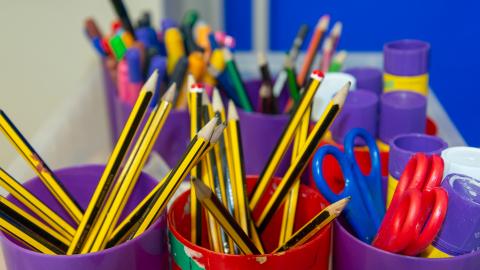We have provided a high-quality Design and Technology Curriculum which will inspire and challenge our pupils by:
- Providing a curriculum which will develop key technical knowledge and skills
- Teaching the technical vocabulary to enable pupils to discuss, investigate and evaluate designs
- Designing and making products for a purpose and user
- Investigating and evaluating existing products and their own products
What our pupils will learn (intent):
As a school, we use Kapow Design and Technology, which meets the requirements of the EYFS Statutory Framework and Development Matters (Expressive Arts and Design) and the National Curriculum for Design and Technology, and enables our teachers to deliver creative, inspiring and engaging lessons. The scheme has been adapted to meet the needs of our school. The curriculum content covers the following areas:
- Cooking and Nutrition,
- Mechanisms,
- Structures
- Textiles,
- Electrical Systems.
Four strands of the Design and Technology Curriculum run through each unit (Design, Make, Evaluate and Technical Knowledge) and the fifth strand, Cooking and Nutrition is a standalone unit each year. Where possible, links are made with other curriculum subjects, as these will often lend ‘purpose’ and ‘user’ for the products which pupils will design and make. A rolling programme ensures that all pupils are taught the full entitlement of Design and Technology curriculum within our mixed age class structure.
How our pupils will be taught the Design and Technology Curriculum (implementation):
Design and Technology is taught in blocks each term. This allows the curriculum to be studied in depth as pupils will have time to complete longer pieces of work over the course of a block rather than in short weekly sessions. In EYFS, Expressive Arts and Design projects are taught in blocks and pupils will also access continuous provision through the term which allows them to return to and build on their previous learning, refining ideas and developing their ability to represent them (Development Matters).
Progression and Assessment:
In EYFS and KS1, pupils will revisit work at spaced intervals and teachers will check any gaps in knowledge
In KS2, pupils' learning is assessed during and at the end of the unit at spaced intervals (roughly 2, 6 and 12 weeks), using the assessment materials in the Kapow scheme of work. Photographs, pupil sketch books and observations of pupils will be used to gather evidence for assessment.
Impact:
The impact of the curriculum will be reviewed at the end of the year through observations and assessments of pupils’ learning, reviews of pupils’ work and through pupil discussions about their learning.

